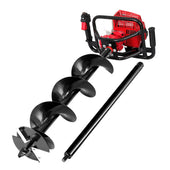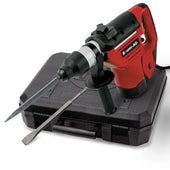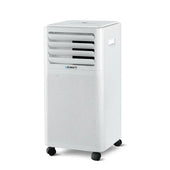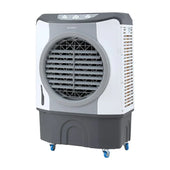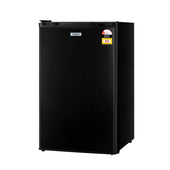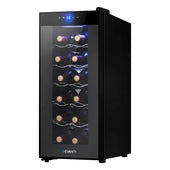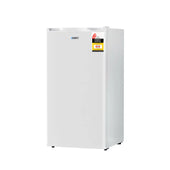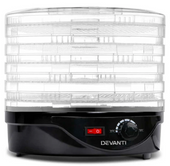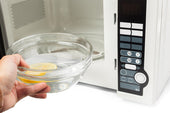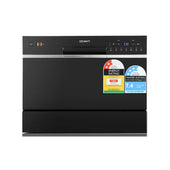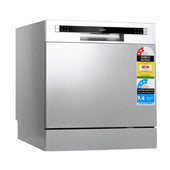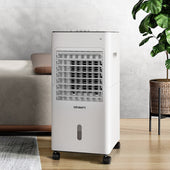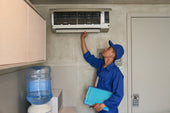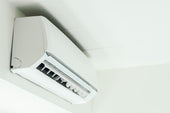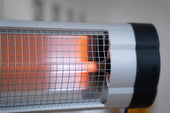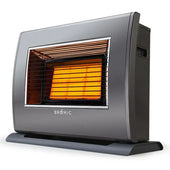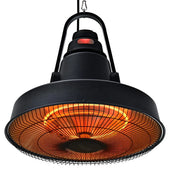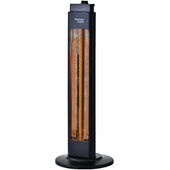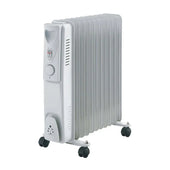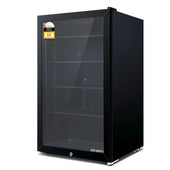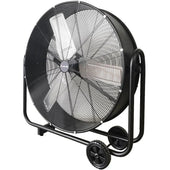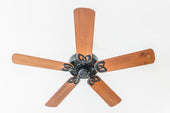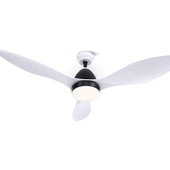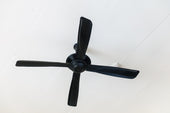Introduction: Understanding the Average Lifespan of a Fridge
Refrigerators are indispensable appliances in modern households, designed to preserve food and beverages while maintaining efficiency in energy consumption. The average lifespan of these appliances varies, influenced by multiple factors such as the brand, model, maintenance habits, and frequency of use. Generally, a well-maintained fridge is expected to last between 10 to 20 years, with most falling within the 12 to 15-year range.
Several signs indicate a fridge nearing the end of its lifecycle, such as inconsistent cooling and unusual noises. Consumers should also consider advancements in energy efficiency and technology when assessing the longevity and replacement of their refrigerator.
Factors That Influence a Fridge’s Lifespan
Several elements determine how long a fridge remains functional and efficient. Below are the primary factors that can influence its lifespan:
- Build Quality: Higher-quality models built with durable materials often last longer than budget-friendly alternatives.
- Usage: Frequent opening and closing of the fridge door strains components like seals and compressors.
- Maintenance: Regular cleaning, defrosting, and servicing help prevent wear and tear.
- Location: Placement matters – fridges kept in damp or hot environments may deteriorate faster.
- Electrical Stability: Power surges or inconsistent voltage can damage circuit boards over time.
- Technological Features: Appliances with complex features may be prone to quicker failures if poorly maintained.
Signs Your Fridge May Be Nearing the End of Its Life
- Frequent Repairs Are Required If the fridge continually demands costly repairs, it may indicate its internal components are deteriorating.
- Excessive Noise Issues Unusual buzzing, rattling, or humming sounds suggest mechanical issues with the motor or compressor.
- Inconsistent Cooling Spoiled food or fluctuating temperatures point to failing cooling systems or faulty seals.
- Escalating Energy Bills A fridge consuming more energy than usual may signal declining efficiency. Older units often struggle to regulate power.
- Visible Wear and Tear Rusting, cracked shelves, or damaged door seals are clear signs of severe ageing.
- Frost Buildup in Freezer Persistent ice formation could mean failing defrost mechanisms or insulation issues needing attention.
The Role of Maintenance in Extending Fridge Longevity
Proper maintenance plays a crucial role in maximising a fridge's lifespan. Regular upkeep ensures the appliance operates efficiently and helps prevent premature wear and tear. Key practices to maintain include:
- Cleaning the condenser coils: Dusty coils force the compressor to work harder, reducing efficiency. Cleaning them every 6-12 months helps maintain optimal performance.
- Checking door seals: A loose or damaged seal allows cool air to escape, overworking the fridge. Inspecting and replacing seals as needed keeps energy consumption down.
- Defrosting regularly: For models without auto-defrost, excess frost can hinder cooling. Manually defrosting ensures proper airflow.
- Maintaining optimal temperature settings: Keeping the fridge at 3-5°C and the freezer around −18°C reduces strain on its components.
Routine care effectively bolsters durability.
Energy Efficiency and Its Impact on Fridge Durability
Fridge energy efficiency significantly influences its durability and overall performance. Modern refrigerators such as those featured on During Days, are designed with advanced compressors and eco-friendly insulation to reduce energy consumption. By operating efficiently, these components experience less wear and tear, which prolongs their lifespan.
Energy-efficient fridges often feature technologies such as inverter compressors that adjust cooling intensity based on demand. This helps minimise strain on the motor. Additionally, proper energy management reduces overheating risks, which can otherwise damage internal components.
To maximise durability, users should ensure the fridge is maintained regularly and kept at optimal temperature settings. Efficient operation lowers stress on mechanical parts, enhancing longevity.
When to Repair vs. Replace Your Refrigerator
Determining whether to repair or replace a fridge depends on factors like its age, repair cost, and efficiency. Generally, refrigerators over ten years old are less energy-efficient and more prone to breakdowns. A repair is reasonable if costs remain under 50% of the appliance's replacement value.
Consider repair if:
- The problem is minor, like a faulty thermostat or door seal.
- The unit is under warranty.
Replacement is likely better when:
- The repair cost exceeds half of a new fridge's price.
- It constantly struggles to maintain temperature.
Energy efficiency and environmental impact also play significant roles in making the decision. Replacing outdated models often results in lower utility costs.
Common Mistakes That Shorten Fridge Lifespan
- Overloading the Fridge: Packing too many items restricts airflow inside, forcing the compressor to work harder and potentially causing premature wear.
- Improper Placement: Placing the fridge close to heat sources like ovens, or in direct sunlight, can overheat components and reduce efficiency.
- Neglecting Cleaning: Failure to clean condenser coils leads to dust build-up, reducing cooling efficiency and straining the motor.
- Frequent Door Openings: Constantly opening the door lets warm air in, putting undue pressure on cooling mechanisms.
- Ignoring Door Seal Maintenance: Worn-out or broken seals allow air leakage, forcing the fridge to use more energy to maintain its temperature.
- Improper Temperature Setting: Setting the thermostat too low increases energy use and wears components faster.
- Storing Hot Food: Placing hot dishes inside increases internal temperature, overworking the cooling system.
- Lack of Regular Servicing: Skipping routine checks and maintenance can lead to unnoticed issues affecting lifespan.
Top Expert Tips to Prolong Your Fridge’s Life
Proper care and maintenance are essential to maximise the lifespan of a fridge.
- Keep the coils clean: Regularly clean the condenser coils to prevent dust build-up, which can cause the appliance to overwork and reduce efficiency.
- Inspect door seals: Check seals for wear and tear to ensure doors close tightly, keeping cold air inside.
- Set proper temperature: Maintain recommended settings, usually 3–5°C for fridges and -18°C for freezers, to balance energy use and functionality.
- Avoid overloading: Keep space between food items for air circulation, as overcrowding strains the motor.
- Position wisely: Place it away from heat sources like ovens or direct sunlight to avoid unnecessary strain.
The Importance of Proper Cleaning and Organisation
Regular cleaning and organisation play a critical role in maintaining a fridge's lifespan. Dust and debris accumulation on the condenser coils forces the appliance to work harder, which can lead to premature wear. Keeping the coils clean ensures efficient cooling and reduces strain on essential components. Organising the fridge's interior also improves airflow, preventing the compressor from overworking. Spills should be wiped promptly as prolonged exposure to moisture can cause rust or mould growth, damaging internal parts. Properly sealed food containers help avoid odour build-up and contamination. By adhering to these practices, a fridge can perform reliably for an extended period.
How to Choose a Refrigerator Built to Last
Selecting a durable refrigerator involves considering key factors that influence longevity and performance. Buyers should prioritise models from reputable brands with a proven track record for reliability. Checking energy efficiency ratings is crucial since higher efficiency reduces wear on critical components.
Essential features, such as stainless steel exteriors and reinforced shelves, contribute to longer lifespans. Adjustable thermostat controls allow precise temperature regulation, preventing undue strain on the compressor. Buyers should compare warranty periods, as extended coverage often signals manufacturer confidence in durability.
Reading online reviews helps gauge customer experiences and highlight potential issues. Regular maintenance instructions provided by manufacturers indicate built-in durability.
Innovative Refrigerator Features That May Affect Lifespan
Innovative features in modern refrigerators can influence their durability and maintenance requirements. While advanced technology enhances convenience, it may also introduce complexities.
- Smart Technology: Smart refrigerators with internet connectivity and touchscreens may suffer from technical malfunctions, requiring specialised repairs.
- Frost-Free Mechanisms: Frost-free freezers reduce manual defrosting, but their complex systems can wear out quicker than traditional freezers.
- Dual Cooling Systems: Separate cooling for the fridge and freezer offers better efficiency but raises the repair cost if one system fails.
- Energy-Saving Components: High-efficiency compressors and eco-friendly refrigerants are eco-conscious but more sensitive to operational wear and tear.
These features provide greater functionality but may have implications for longevity and maintenance budgets.
Conclusion: Keeping Your Fridge Running for the Long Haul
Proper care and attention can greatly extend the lifespan of a refrigerator. Regular maintenance, such as cleaning the condenser coils and checking door seals, helps prevent unnecessary strain on the appliance. It is also essential to keep the fridge at an appropriate temperature, typically between 3°C and 5°C, for optimal efficiency. Avoid overstuffing your fridge, as this can strain the cooling system.
Energy efficiency should also be monitored, as declining performance could signal issues requiring professional servicing. Addressing minor issues promptly and ensuring proper positioning with adequate ventilation are further steps to prolong its operational life.






















































